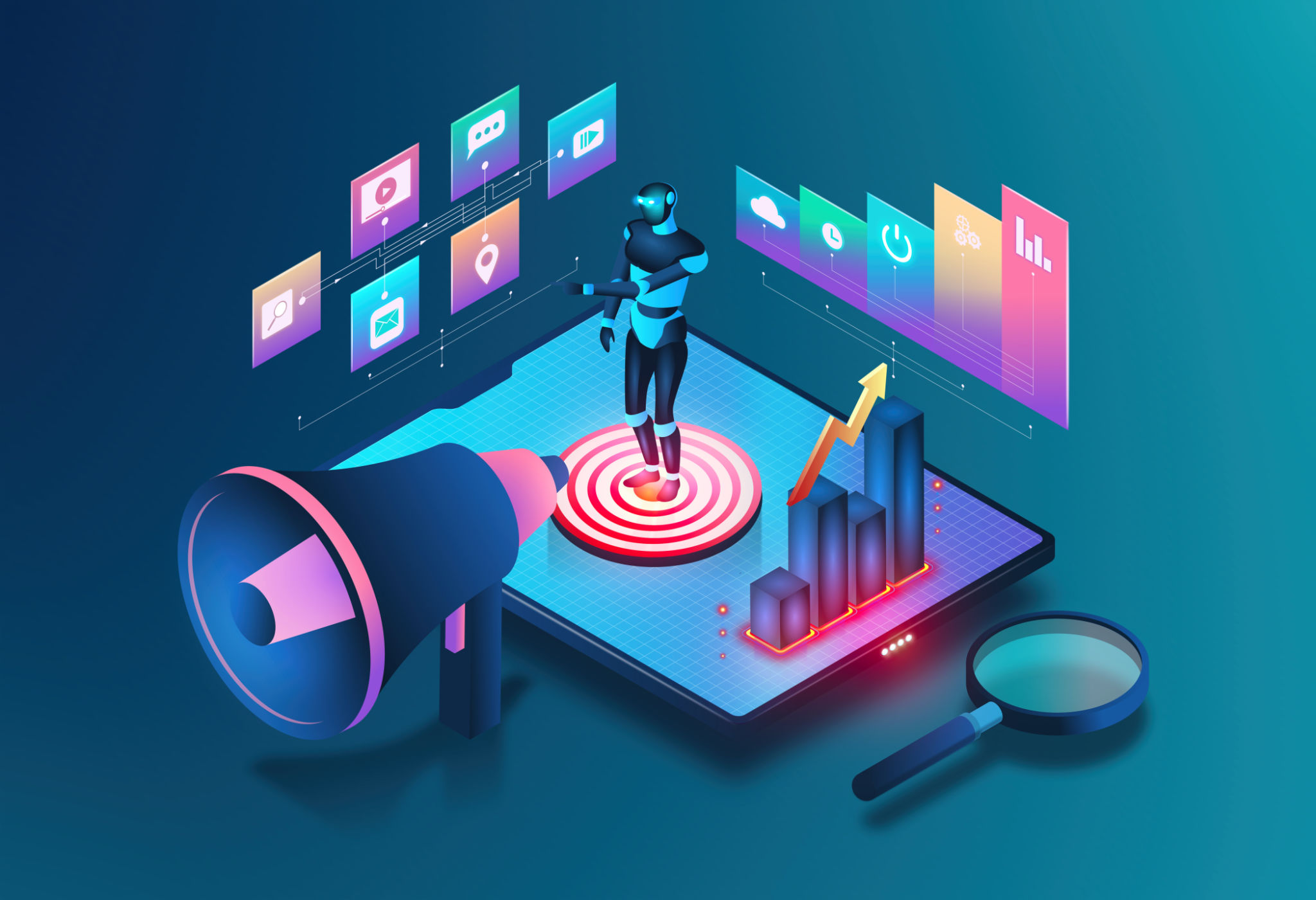A Comprehensive Guide to Implementing AI in Your Marketing Campaigns
Understanding the Role of AI in Modern Marketing
Artificial Intelligence (AI) has revolutionized various industries, and marketing is no exception. By leveraging AI, businesses can automate processes, gain deeper insights into customer behavior, and create more personalized experiences. But how exactly can AI be integrated into marketing campaigns? This guide explores the essential steps to effectively incorporate AI into your marketing strategy.

Identify Your Marketing Goals
The first step in implementing AI within your marketing campaigns is to clearly define your objectives. What do you hope to achieve? Whether it's increasing brand awareness, boosting sales, or enhancing customer engagement, having a clear goal will help you determine how AI can support your efforts.
Once your goals are defined, assess which areas of your marketing strategy could benefit most from AI. This might include automating repetitive tasks, analyzing data trends, or personalizing customer interactions.
Choose the Right AI Tools
There are a plethora of AI tools available, each designed to address different aspects of marketing. Some popular options include:
- Chatbots: Automate customer service and support.
- Predictive Analytics: Forecast future trends and behaviors.
- Content Creation Tools: Generate and optimize content for various platforms.
Choose tools that align with your objectives and integrate seamlessly with your existing systems. It's crucial to research and select vendors with a proven track record of delivering effective AI solutions.

Data Collection and Management
AI thrives on data. To maximize the benefits of AI in your marketing campaigns, ensure you have a robust data collection and management strategy. This involves gathering data from multiple sources, such as social media, website analytics, and customer interactions.
Once collected, organize your data in a way that allows AI algorithms to easily analyze and extract meaningful insights. Data privacy is also paramount; ensure compliance with regulations like GDPR to protect customer information.
Integrate AI with Existing Marketing Channels
AI should complement, not replace, your existing marketing channels. For example, use AI-powered tools to enhance email marketing efforts by personalizing content based on user behavior or optimizing social media campaigns through trend analysis.
By integrating AI with current strategies, you can create a cohesive approach that amplifies your marketing efforts and delivers better results.

Measure and Optimize Performance
As with any marketing initiative, it's important to measure the performance of your AI-driven campaigns. Use analytics tools to track key performance indicators (KPIs) such as engagement rates, conversion rates, and return on investment (ROI).
Regularly review these metrics to identify areas for improvement. AI tools often come with built-in analytics features that provide real-time insights, allowing you to optimize campaigns on the fly and achieve better outcomes.
Future-Proofing Your Marketing Strategy
AI is continuously evolving, and staying updated with the latest advancements is crucial for maintaining a competitive edge. Attend industry conferences, participate in webinars, and engage with thought leaders to stay informed about emerging trends and technologies.
By proactively adapting to new developments in AI, you can future-proof your marketing strategy and ensure long-term success in an ever-changing digital landscape.

